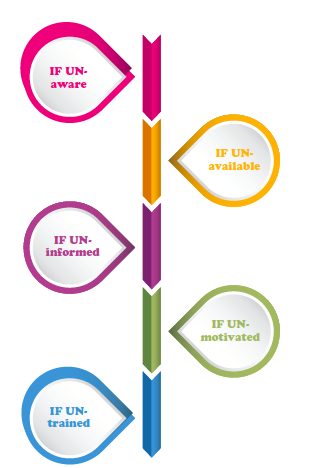
YOU might not believe it but sometimes education and training are last on the list of an organisation’s priorities.
We all know that things go wrong. We know that frequently there is no time and no budget for training and in the middle of a hectic department there is no motivation or appetite for it either.
Yet, we are also acutely aware that training is a legal requirement for hospital staff (employers’ liability) and underpins every role.
The fact is that training is essential and an integral part of every hospital role. Training and roles are NOT mutually exclusive.
Organisations also have to ensure that training time – not just the duration, but the frequency of training, the scheduling and timing of training – is considered important enough to be a priority.
Training managers and staff need to be allowed dedicated time for training or dedicated audit days as well as allocated protected time for online learning, together with certification opportunities via CPD or similar accreditation programmes.
We know that people may be UNMOVED to change their clinical practice or use new technology because of the restraints of time and resource.
However, there are also those who actively avoid training because they are:
To address these “UNs”, we need to reframe “education and training “ as defining the optimal patient journey.
If you have the responsibility for training, then you have to discover and confirm WHAT the staff need and HOW they need it addressed
Sometimes we don’t know what we don‘t know. Or we don’t fully understand what we don’t know (yet). This is evident even in the mandatory training topics such as child protection, fire safety, new job induction or code of conduct.
In-service product training for hospital staff is not listed as mandatory but in the interests of patient safety and to avoid negative outcomes due to mis-use, product training is highly recommended and should be mandatory.
Most medical errors involving medical devices are not caused by mechanical failures. For CE-marked products, the requirement on the company to provide product training and support is mandatory ( ISO 14971, 13485) .
For hospitals, it is the employer’s liability legislation that sets out that the employer (the hospital) must provide staff with the necessary, relevant education and training that they need to safely and effectively carry out their contracted roles. This takes us back to the earlier point above that training is intrinsic to staff roles and should not be an add-on.
In delivering education, then train to educate. Access courses to train the trainer, such as our Post Graduate Diploma in Clinical Education.
In these instances, there will typically be evidence of deliberate avoidance of training. Here it is helpful to consider all possibilities before jumping to a conclusion – it may be due to a customer/patient complaint or a difficult, challenging programme.
For online training, it might be due to a variety of factors, such as lack of skills, dexterity for typing or underlying learning needs such as dyslexia, colour blindness or Attention Deficit Hyperactivity Disorder
Interest and engagement may need to be developed. Understanding of neuroscience and adherence to factfulness will help you to do this. Using neuroscience and brain friendly approaches allows trainers to focus on the relevant information at the right time.
In any training situation, the goal is optimal knowledge/skills transfer without “brain overload”.

So, having “their brain in mind” will motivate your trainees and result in better decision-making and a greater understanding of patients’ requirements and an enhanced ability to interact with colleagues.
Situational awareness, external engagement, communications leadership, relationship influencing and “inner and outer improvement” are some of the core principles to be applied in the delivery of your content.
Our brains have tremendous capacity to learn. How training is delivered and the learning environment in which it is delivered impact on the mental capacity to transfer newly acquired knowledge and skills.
“Brain friendly”changes to the way training is delivered can improve the opportunity for the transfer of learning.
Having a better understanding of how the principles of neuroscience can turbocharge the effectiveness of the training that you deliver will result in a prophylactic rather than a therapeutic approach to training.
So .… no more “last on the list” for hospital staff training.
Promote the best clinical support, levels of training, technical support and demonstrate the highest standards of Best Practice for Patient Safety.
![]()
back
E-mail:
Tel: +44 (0) 141 946 6482
Address: Healthcare Skills Training International Ltd
West of Scotland Science Park
Block 7, Kelvin Campus
Glasgow G20 0SP